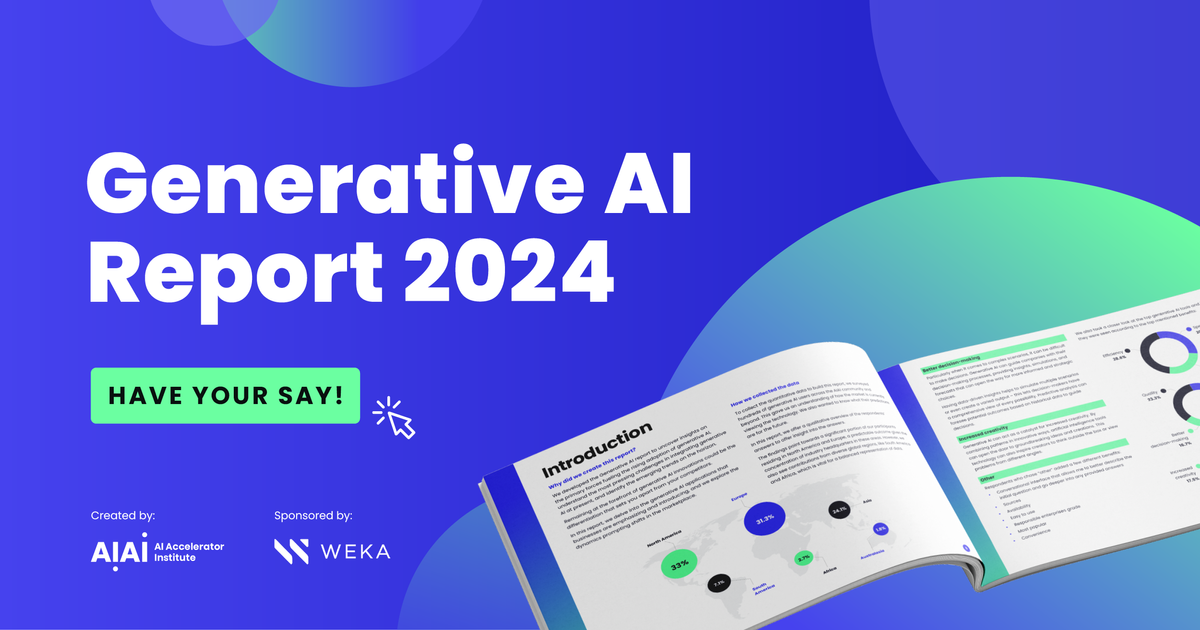In today's rapidly evolving digital landscape, artificial intelligence (AI) stands as a transformative force with the potential to revolutionize industries, spur innovation, and drive economic growth.
However, unlocking the full potential of AI requires overcoming significant computational challenges. This is where AI accelerators come into play. AI accelerators, specialized hardware designed to optimize AI workloads, play a crucial role in accelerating AI adoption, powering economic growth, and fostering social development.
Acceleration of AI adoption
AI accelerators serve as catalysts for the widespread adoption of AI technologies across various sectors. By enhancing the speed and efficiency of AI computations, these specialized hardware solutions enable organizations to harness the power of AI for a wide range of applications, from autonomous vehicles and healthcare diagnostics to finance and cybersecurity.
Furthermore, AI accelerators facilitate the deployment of AI models at scale, making it feasible for businesses of all sizes to integrate AI into their operations.

Driving economic growth
The widespread adoption of AI, fueled by AI accelerators, has the potential to drive significant economic growth.
By automating repetitive tasks, optimizing processes, and enabling data-driven decision-making, AI technologies enhance productivity and efficiency across industries, leading to increased output and competitiveness. Moreover, AI-powered innovations create new business opportunities, drive entrepreneurship, and stimulate job creation.
As businesses leverage AI to improve products and services, enhance customer experiences, and unlock new revenue streams, they contribute to economic expansion and prosperity.
Fostering social development
Beyond economic benefits, AI accelerators play a vital role in fostering social development and addressing pressing societal challenges. AI-driven solutions have the potential to revolutionize healthcare delivery, improving diagnostics, personalized treatment plans, and patient outcomes.
In education, AI-powered tools can enhance learning experiences, personalize instruction, and bridge gaps in access to quality education. Furthermore, AI technologies enable advancements in areas such as environmental monitoring, disaster response, and public safety, contributing to the well-being and resilience of communities worldwide.
Challenges and opportunities
While AI accelerators hold immense promise, their widespread adoption faces challenges such as high costs, technical complexity, and ethical considerations.
Addressing these challenges requires collaboration between governments, industry stakeholders, and the research community to develop affordable, accessible, and ethical AI solutions.
Moreover, investments in AI education and workforce development are essential to ensure that societies can fully harness the benefits of AI technology while mitigating potential risks.
Conclusion
In conclusion, AI accelerators play a pivotal role in accelerating AI adoption, driving economic growth, and fostering social development.
By enhancing the speed, efficiency, and scalability of AI computations, these specialized hardware solutions empower organizations to unlock the full potential of AI across various sectors.
As we navigate the digital age, embracing AI accelerators presents an unprecedented opportunity to harness the power of AI for the benefit of economies and societies worldwide, ushering in a new era of innovation, prosperity, and human progress.
Help shape the generative AI industry by sharing your expertise:



